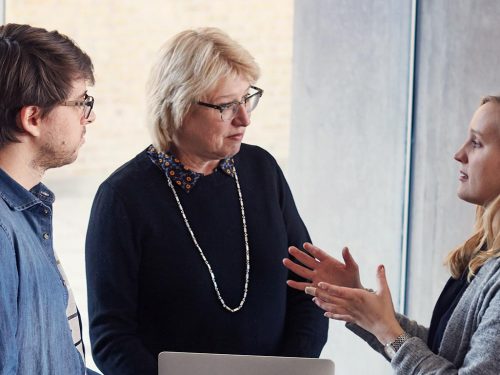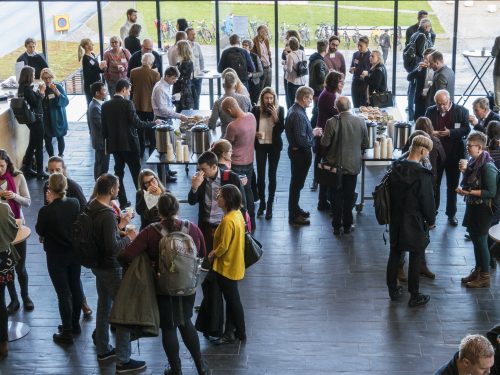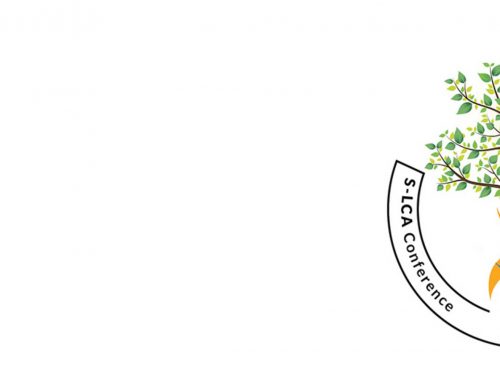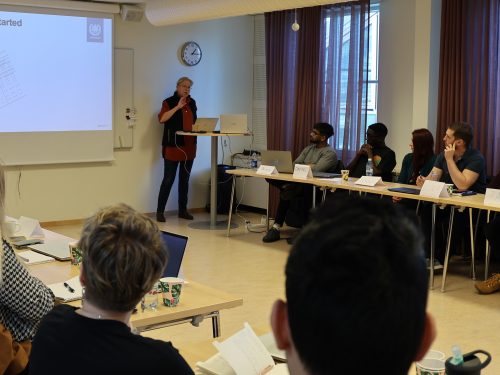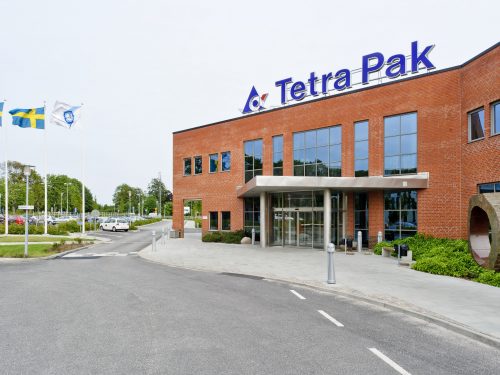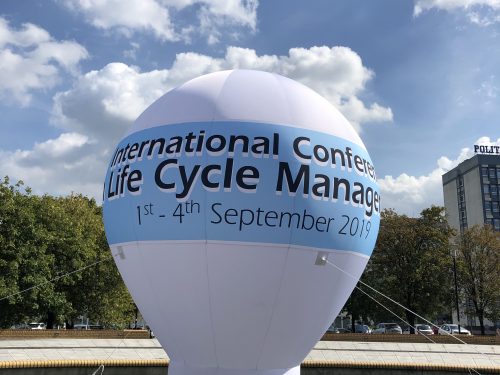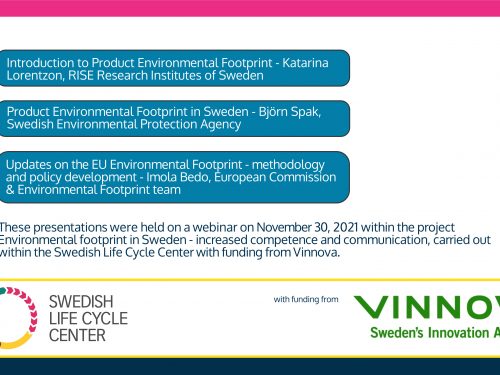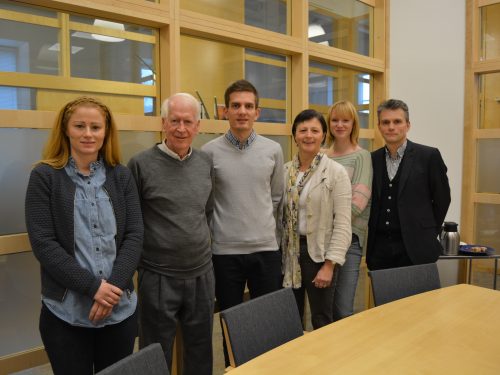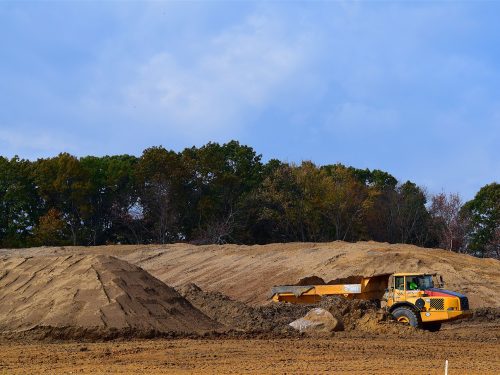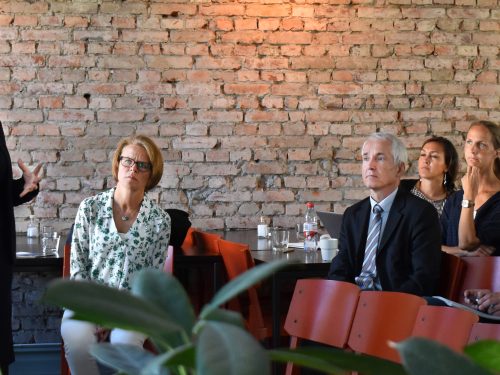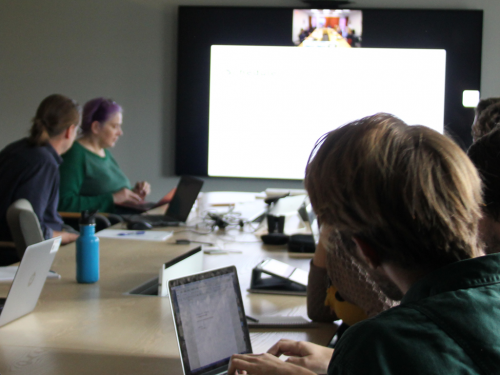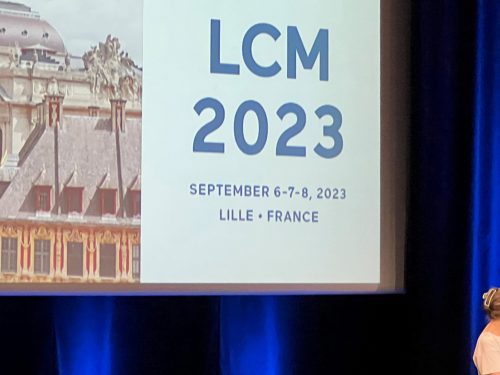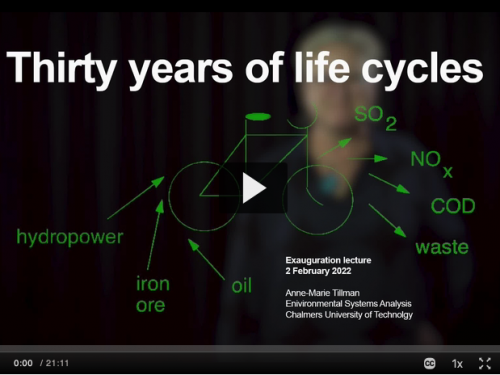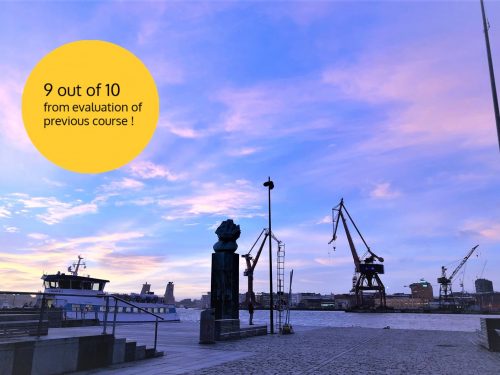Search result (100 hits on "Case studies")
The project Environmental Footprint in Swedish Industry – increased understanding and implementation started in November 2022. The aim of the project has been to enhance awareness among businesses, authorities, and the public sector in Sweden…
Author Maria Rydberg, Anna Wikström and Yulia Liu, Swedish Life Cycle Center, Erika Kloow and Josefin Neuwirth, IVL, Jonas Larsson, SSAB, Torun Hammar and Mats Zackrisson, RISE Research Institutes of Sweden, Jennifer Davis, Felipe Oliveria, Morgana Santos de Lima and Ben Whitaker, Volvo Car Corporation, Babak Kianian and Sofia Poulikidou, Höganäs AB, Lionel Belzons and Lisa Åkerlund, CEVT.
The pursuit for win-wins has a long history. From an understanding of the relationship between environmental performance and economic activity, the need for environmentally sustainable business models has emerged. The purpose of this project is to grow the knowledge, capacity, and application of Business Model Life Cycle Assessment (BMLCA).
Type Research project
Time period 2023-09-01 - Ongoing
The project aims to help Swedish actors understand EU Environmental Footprint & explain the effects of methodological choices in Environmental Footprint
Type Research project
Time period 2022-12-01 - 2023-11-30
Life cycle information is used differently thru out the organization, this project investigate how information can contribute for better environmental performance when addressed correctly. The aim of the project is to facilitate for the various functions of a company to contribute to increased energy efficiency in a life cycle perspective.
Type Research project
Time period 2016-08-15 - 2018-08-31
Monetary valuation of environmental impacts is increasingly used as a basis for decisions in environmental and sustainability issues. This project aims to develop a methodology to communicate environmental damage cost data.
Type Research project
Time period 2016-10-01 - 2018-06-30
Workshop on Stimulating Innovative and Sustainable Business Decisions
The 10th of October 2016, there will be a workshop in Gothenburg within the project Integration of environment and economy in product development gives opportunity for innovation. The workshop will provide opportunities for discussion, as…
Webinar: EU Environmental Footprint – industrial experiences & updates on the policy process
Welcome to join the webinar EU Environmental Footprint – industrial experiences & updates on the policy process arranged by the Swedish Life Cycle Center within the project Environmental Footprint in Sweden, funded by Vinnova. The…
Poster presentation at LCM 2023.
Author Anna Wikström (Swedish Life Cycle Center/Chalmers University of Technology) Maria Rydberg (Swedish Life Cycle Center/Chalmers University of Technology), Torun Hammar (RISE Research Institutes of Sweden), Erika Kloow (IVL Swedish Environmental Research Institute)
Background There are many ways to assess and quantify resource efficiency, from simple measures of how much of a particular resource is needed for a particular product to more general measures that…
Type Research project
Time period 2018-11-15 - 2020-10-31
Webinar & workshop: Requirements and expectations for making products’ environmental footprints visible
– How are Swedish companies affected by the EU’s development of the environmental footprints? The project Environmental Footprint in Sweden aims to involve and engage business, authorities and the…
Webinar: How life cycle perspective is introduced in education at undergraduate studies at KTH?
WHAT: A webinar about how life cycle perspective is introduced in education at undergraduate studies at KTH with Anna Hedlund-Åström, Associate Professor at Department of Machine Design at KTH Royal Institute of Technology WHEN:…
In this project, the possibility of standardizing a simplified structure of concepts for system analysis through discrete choice of system boundaries will be investigated. The purpose is to reduce the complexity of system analysis sustainability…
Type Research project
Time period 2019-03-01 - 2020-01-10
Platform presentation at SETAC Europe 26th LCA Symposium in Gothenburg, Sweden on October 22, 2024. In session: Qualitative Life Cycle Studies Exploring the Practical Meaning of Life Cycle Studies.
Author Anna Wikström, Yulia Liu, Maria Rydberg
The method for modeling material recycling can have a decisive impact on the environmental assessment of products with a high content of recycled material or material that is recycled after use. How recycling should be modeled in LCA has been discussed since the 90's but no consensus has yet been reached. The project is expected to result in increased competence and in consensus on certain aspects of the modeling of recycling in LCA.
Type Research project
Time period 2018-11-15 - 2020-05-31
Environmental footprint in Sweden – increased competence and communication – Lessons learned of working with Product Environmental Footprint This report was written within the project Environmental Footprint in Sweden – increased competence and communication, managed within…
Author Sara Palander, Swedish Life Cycle Center; Katarina Lorentzon, RISE; Torun Hammar, RISE; Karin Sanne, IVL; Johan Nilsson, IVL; Lisa Hallberg, IVL; Björn Spak, Swedish EPA
Background 2009 the first handbook on social life cycle assessment (S-LCA) was published by the UN environmental program (UNEP). From its origin as an environmental tool, life cycle assessment is now being developed in towards…
Type Research project
Time period 2019-10-01 - 2020-03-31
Conference reflections and report from 9th International Conference on Life Cycle Management (LCM 2019) The 9th International Conference on Life Cycle Management (LCM 2019) took place between 1rd– 4thSeptember 2019 in city of Poznan, Poland.
EPS (Environmental Priority Strategies in product design) is a systematic approach to choose between design options in product and process development.
Type Research project
Time period 1989-01-16 - 2022-05-31
This project aims to generate knowledge and common insights on unclear and inconsistent points in LCA-related documents in ISO and GHGP.
Type Research project
Time period 2024-11-04 - Ongoing
Webinar: Putting a cost on environmental damages – a method for innovation
Content The webinar starts with a presentation of the monetizing project, IMP (Integration of environment and economy in product development gives opportunity for innovations) and the steps that are planned for the step 2 application.
Fuel producers are increasingly affected by conflicting rules for life cycle assessment (LCA). The EU Renewable Energy Directive (RED), the EU framework for Product Environmental Footprints (PEF), and the frameworks of Environmental Product Declarations (EPD)…
Type Research project
Time period 2020-06-15 - 2021-12-31
Network Conference: The role of life cycle thinking in a circular economy
We welcome partners and invited guests to participate in the upcoming network conference arranged by Swedish Life Cycle Center and the project Swedish platform for the life cycle perspective (funded by Swedish Energy Agency) on Wednesday February 7, 2018 in Gothenburg.
Measuring Eco-efficiency by a LCC/LCA Ratio. An evaluation of the Applicability, A case study at ABB
Author Lyrstedt, Fredrik
Life Cycle Talks: How to assess the environmental performance of emerging technologies? With Matty Janssen
Welcome to Life Cycle Talks! A series of talks presenting the research front to keep you up to date with the science and application of the life cycle perspective. Our next guest is Matty Janssen,…
Since 2016, the center has a close collaboration with seven Swedish government agencies. They meet on a regular basis to share experience and build common knowledge in the life cycle field. These authorities play important roles…
Summary The European Commission developed a framework for life cycle assessment (LCA) denoted Product Environmental Footprint (PEF) in collaboration with representatives from the EU Member States, industry, and researchers.
Author Tomas Ekvall, TERRA; Katarina Lorentzon, RISE Research Institutes of Sweden; Elin Einarson Lindvall, RISE Research Institutes of Sweden; Sara Palander, Swedish Life Cycle Center
Webinar #2: Innovative LCA tools: Exploring Premise, Activity Browser and Brightway
Welcome to the second webinar in the series “Innovative LCA tools: Exploring Premise, Activity Browser and Brightway”. Our speakers will share personal reflections, demonstrate streamlined workflows, and unveil the potential of innovative LCA tools…
Video Lecture: Thirty years of research on Life Cycle Assessment 26 years ago, Swedish Life Cycle Center started its journey. A journey built on a common need between academia, industry,…
Two-day course in Applied life cycle thinking November 2022 – ONLINE
The life cycle perspective, understanding the environmental impacts of a product or service throughout the value chain, is gaining increased importance in business as well as in public sector and authorities. In this two-day course…
Two-day course in Applied life cycle thinking 2020, Gothenburg – ONLINE
The life cycle perspective, understanding the environmental impacts of a product or service throughout the value chain, is gaining increased importance in business as well as in public sector and authorities. In this two-day course…
Background While life cycle data is increasingly demanded, manual data collection is time-consuming. Supply chains are complex, all suppliers do not have competence or capacity to provide the data needed. Personal contacts to explain adds…
Type research project
Time period 2021-11-01 - 2022-07-31












